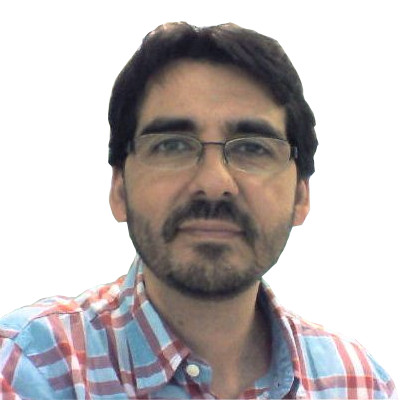
|
|
|
AFADM10 Automatic Annotation and Data Mining |
|
IMPORTANT DATES for AFADM10
|
Instructor: |

Ana Conesa is a senior scientist at the Bioinformatics and Genomics Department of the CIPF. She did her PhD in Fungal Genetics at the Dutch Institute for Applied Sciences (TNO), followed by a Bioinformatics Project Leider position a the Toxicology Department. Then she moved to the Valencia Agricultural Research Institute to step-up a Bioinformatics service until April 2007, when she joined the CIPF. Her research activity is in the Field of Functional Genomics, developing bioinformatics methods for the functional annotation of non-model organisms, the statistical analysis of transcriptomics data and the integration of systems biology data. In particular, Blast2GO |
| Affiliation Centro de Investigacion Principe Felipe, Valencia, ES |

Javier Santoyo-Lopez obtained his PhD in Biological Sciences from the University Autonoma of Madrid (UAM) in 1997. His PhD studies were performed at the Spanish Research Council (CSIC) Centre of Molecular Biology “Severo Ochoa” (Madrid, Spain). After his PhD he moved to Dundee (Scotland, UK) where he obtained his MSc in Bioinformatics at the University of Abertay Dundee. He was a Bioinformatician at the Wellcome Trust Biocentre (Dundee, Scotland, UK), at the Sanger Institute (Hinxton, England, UK), at the Spanish National Cancer Centre - CNIO (Madrid, Spain) and at the Division of Pathway Medicine (Edinburgh, Scotland, UK). Since 2008 he works at the Biomedical Network Research Centre for Rare Diseases (CIBERER) in The Prince Felipe Research Centre – CIPF (Valencia, Spain) where he is involved in the study of genomic variations and regulatory elements that are cause of Rare Diseases. He is also involved in the study of non-coding RNAs, in particular, the study of the RNA interference phenomenon (RNAi). |
| Affiliation Centro de Investigacion Principe Felipe, Valencia, ES |
Course description:Cost reduction in sequencing technologies is resulting in a growing number of laboratories getting involved in genome sequencing projects where a large amount of sequencing data is generated. After assembly, a large amount of unique sequences are obtained which need to be further characterized with putative functions. Good and sufficient functional annotations are decisive for follow up analyses such as gene expression, strain variations, tissue functional profiling, etc. The course will teach on the principals and practical aspects of automated functional annotation of (novel) sequence data. Participants will learn how to:
The course will be based on the use of Blast2GO application and will mainly comprise exercises and practical cases. Participants may bring their own data. Who should attend?> Experimentalists and bioinformaticians working on EST, NextGeneration Sequencing and microarray design projects, specially (but not exclusively) of non-model species. No programming knowledge is required. NOTE: This course is held immediately after MDAGB10, a course that we ran many times and trains people in Microarray Data Analysis using one of the most cited software suites for this purpose, that is available for free. You have the choice of applying to AFADM10, MDAGB10,or both. |
|
Course Pre-requisites: basic knowledge in Molecular Biology and Statistics. |
|
Detailed Program for AFADM10
Detailed Program for MDAGB10 |
|
Instituto Gulbenkian de Ciência, Apartado 14, 2781-901 Oeiras, Portugal Last updated: April 8th 2009 |